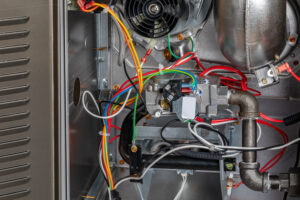Choose The Right AC Size
There are plenty of important things to consider when choosing a new air conditioner for your home. One of the most important, however, involves the size of your new unit. After all, the same unit that can easily tackle a 1,000-square-foot house might not be as effective at cooling a 5,000-square-foot mansion. The right AC size plays a bigger role than you might realize.
There’s also a tendency for many homeowners and even some HVAC experts to deliberately choose the wrong size air conditioner, usually in the name of cost or energy-efficiency. The following explains why it’s so important to choose the right size air conditioner, as well as the consequences of buying a unit that’s either too big or too small for your home.
The Meaning of “Size” and How It Relates to AC Systems
When HVAC technicians talk about the “size” of an air conditioner, they’re usually referring to the unit’s capacity for providing cool, conditioned air. Such performance is usually measured in either British thermal units (BTUs) or “tons,” which is why you’ll sometimes hear technicians refer to an air conditioning system as a one-ton or two-ton unit, for example. This jargon stems from the days when people used blocks of ice for refrigeration and air-conditioning, but there’s also a scientific reason behind it.
In order to melt a single pound of ice under room temperature conditions, you’ll need 143 BTUs of heat energy in order to get the job done. Now scale this up to a ton of ice-now you’ll need approximately 286,000 BTUs of heat energy to melt that much ice. If you want to get that much ice melted within a 24-hour period, then you’ll need to somehow generate 12,000 BTUs of heat energy per hour to make that happen.
So now it’s established that it takes 12,000 BTUs of heat energy per hour to completely melt a one-ton block of ice. This explains why an air conditioner with a cooling capacity rated at 24,000 BTUs per hour is often referred to as a two-ton unit.
What Happens When You Choose the Wrong Size
No two homes are alike when it comes to their cooling demands. Differences in insulation, orientation, climate, ventilation, and a host of other factors can mean the difference between choosing a one-ton unit or a two-ton unit. Nevertheless, homeowners often choose undersized or oversized air conditioning systems based on the following fallacies:
- An oversized AC unit offers quicker and more effective cooling
- An undersized AC unit offers greater energy-efficiency due to its smaller cooling capacity
- It doesn’t matter what size AC unit you choose as they all perform the same
An oversized air conditioner may be able to cool your home’s indoor spaces faster, but at the expense of poor moisture control, increased wear and tear on internal components and a shortened lifespan due to excessive wear. An undersized air conditioner won’t have enough cooling capacity to meet your home’s cooling demands. As a result, it’ll continuously struggle to reach your desired indoor temperature, wasting energy while creating excessive wear and tear in the process.
How to Pick the Right Size
Choosing the right size air conditioner for your home means sizing up your home’s cooling needs. Some HVAC technicians do just that by following the traditional rule of thumb. While this method is relatively simple to use, it also leaves out several factors that could have a tremendous effect on your home comfort, including your home’s square footage.
In order to get a more accurate picture of what your home needs, our HVAC technician will perform a manual J-load calculation. This process goes further in-depth to reveal how much cooling capacity your air conditioner will need to maintain comfortable temperatures throughout the season. Armed with the knowledge gleaned from the load calculation, you’ll be able to choose the best air conditioner that offers the exact level of cooling your home requires. Contact Dalton Heating & Air Conditioning today at 706-619-2799 to learn more or to get an estimate.
Image provided by Thinkstock
You May Also Like

Sounds and Smells of a Failing Furnace That Needs Repairs
During the cold weather in Rocky Face, GA, your furnace is one of the most important appliances in your home. But what… Continue Reading Sounds and Smells of a Failing Furnace That Needs Repairs…

Signs and Symptoms of Poor Indoor Air Quality in Calhoun, GA
As temperatures drop in Calhoun, GA, residents seal their homes to keep the warmth inside. But in doing so, they may trap… Continue Reading Signs and Symptoms of Poor Indoor Air Quality in Calhoun, GA…

Why Consider Ductless Heating for Your Home Addition
When building a home addition in Chattanooga, TN, homeowners often face the challenge of heating the additional space without overhauling their existing… Continue Reading Why Consider Ductless Heating for Your Home Addition…
